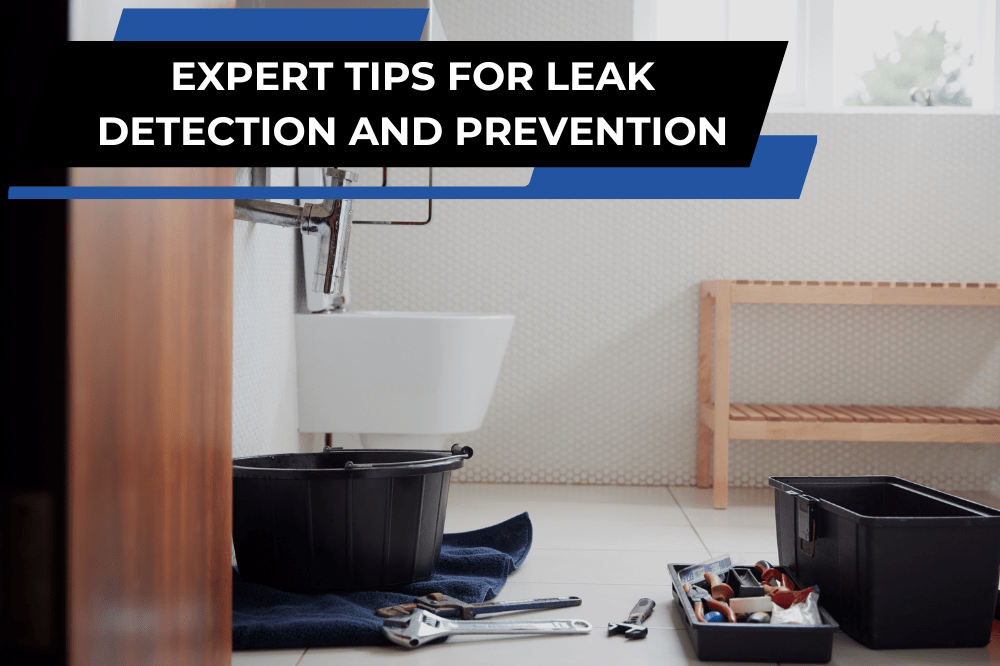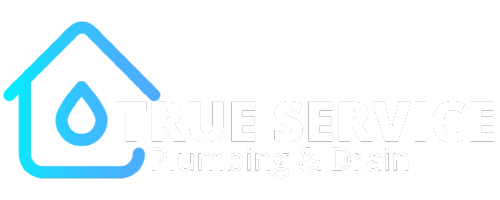Welcome to our comprehensive guide on water leak detection and prevention. As the seasons change and spring quickly approaches, it’s essential to ensure your home’s plumbing system is in top condition. In this guide, we’ll explore how to find water leaks and prevent potential damage before it becomes a costly issue.
Why Water Leak Detection Matters
Water leak detection is crucial for maintaining the integrity of your home and preventing expensive repairs down the line.
Even a small leak can lead to significant damage if left unchecked. By detecting water leaks early, you can avoid structural damage, mold growth, and high water bills.
Signs of Water Leaks
Detecting water leaks early can save you time and money. Here are some common signs of water leaks to look out for:
Unusually high water bills: Keep an eye on your water usage and look for any spikes in your monthly bill. A sudden increase in water consumption could indicate a hidden leak.
Damp or discolored walls and ceilings: Water stains or discoloration could indicate a hidden leak. Pay close attention to areas near plumbing fixtures or where pipes are located.
Musty odors: Mold and mildew thrive in damp environments, so if you notice a musty smell, there could be a leak nearby. Investigate any areas where you detect this odor.
Constantly running water meter: If your water meter is constantly running, even when no water is being used, it could be a sign of a leak. Check your meter periodically to monitor for any unusual activity.
When to Check for Water Leaks
Spring is the perfect time to check for water leaks as the weather warms up and your plumbing system may experience changes. Here are some key times to check for water leaks:
After the winter: Cold temperatures can cause pipes to freeze and crack, leading to leaks when they thaw out. Inspect your plumbing system for any signs of damage or wear and tear.
Before the rainy season: Heavy rain can put added pressure on your plumbing system, so it’s essential to ensure everything is in working order beforehand. Check your gutters and downspouts for any blockages or leaks that could lead to water damage.
Where to Find Water Leaks
Water leaks can occur in various places throughout your home. Here are some common areas to inspect:
Bathroom: Check around toilets, sinks, and showers for any signs of water damage or leaking pipes. Pay close attention to the grout and caulk around these fixtures, as they can deteriorate over time and lead to leaks.
Kitchen: Inspect under the sink and around the dishwasher and refrigerator for any leaks. Check the connections to your appliances and look for any signs of corrosion or rust.
Basement: Look for signs of water damage on the walls or floor, as well as around the water heater and sump pump. Check for any cracks or gaps in the foundation that could allow water to seep in.
How to Find Water Leaks
While some water leaks may be hidden, there are several methods you can use to detect water leaks on your own:
Monitor your water meter: Turn off all water sources in your home and check your water meter. If it continues to move, you likely have a leak. Keep track of your water usage over time to identify any unusual patterns.
Visual inspection: Look for any visible signs of water damage, such as dampness or mold growth. Check under sinks, around appliances, and in the basement or crawlspace for any signs of leaks.
Use a water leak detection kit: These kits can help you identify leaks in hard-to-reach places, such as behind walls or under floors. Follow the instructions carefully and use the provided tools to pinpoint the source of the leak.
Preventative Measures
In addition to detecting water leaks, there are steps you can take to prevent them from occurring in the first place. Here are some preventative measures to consider:
Regular maintenance: Schedule regular inspections of your plumbing system to check for any signs of leaks or damage. Replace worn-out seals, caulk, and plumbing fixtures to prevent leaks from developing.
Insulate pipes: Insulating your pipes can help prevent them from freezing and bursting during the winter months. Use foam pipe insulation to protect exposed pipes in unheated areas of your home.
Repair leaks promptly: If you do detect a water leak, it’s essential to address it promptly to prevent further damage. Contact a professional plumber to repair the leak and ensure your plumbing system is in good working order.
Conclusion
In conclusion, detecting and preventing water leaks should be a priority for homeowners, especially as spring approaches.
By staying vigilant and knowing what signs to look for, you can save yourself time, money, and stress in the long run.
Remember, if you suspect you have a water leak, don’t hesitate to contact a professional plumber for assistance.
Detect and Prevent Leaks with True Service Plumbing
When it comes to detecting and preventing water leaks in your home, True Service Plumbing is your go-to expert in Toronto and the GTA.
Our licensed professionals specialize in comprehensive plumbing services for both residential and commercial properties.
If you suspect a water leak or need assistance with your plumbing system, don’t hesitate to reach out to True Service Plumbing.
Our team is dedicated to providing efficient solutions to ensure your plumbing systems are in top condition.
Schedule your FREE plumbing inspection today and experience quality care, quality service!


